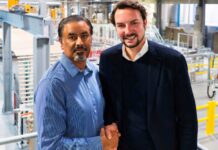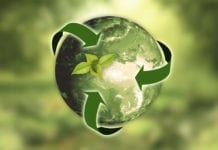Kimberly-Clark (K-C) has highlighted its ongoing commitment to environmental sustainability in its 2017 Global Sustainability Report.
The report gives an update on its progress towards achieving its 2022 sustainability goals.
In 2017, key outcomes included:
• Social Impact – in the first two years, the lives of 4.3m people in need worldwide have benefited through programmes that increase access to sanitation, help children thrive and empower women and girls;
• Forests & Fibre – sourced 89% of the fibre used in tissue products from environmentally preferred sources, including FSC-certified virgin fibre and recycled fibre;
• Waste & Recycling – further increased the amount of waste diverted from landfills (includes both manufacturing and non-manufacturing facilities) to 95%;
• Energy & Climate – lowered absolute greenhouse gas (GHG) emissions by 18% (from 2005 baseline) through improved energy efficiency and increased use of alternative energy sources.
• Supply Chain – invested in watershed analyses, as well as water treatment and recycling technologies, further reducing the company’s water consumption in water stressed areas.
K-C has also expanded the programme in several areas: it began measuring and reporting on Scope 3 GHG emissions – the indirect emissions that occur both upstream and downstream in the supply chain – and will establish reduction targets later this year.
It also worked with the World Resources Institute and World Wildlife Fund to identify its primary sources of Scope 3 emissions.
The company plans to drive further gains toward its goal of diverting at least 150,000 metric tonnes of waste through programs that reduce waste through design, or divert it from low value disposal outlets to higher value, beneficial uses.
Thomas J. Falk, K-C’s chairman and chief executive, said: “We continue to make strides in our efforts to create positive social and environmental change.
“That’s why we are committed to an ambitious set of sustainability goals that will have a lasting impact on the people we serve around the world and the communities we touch.”






























